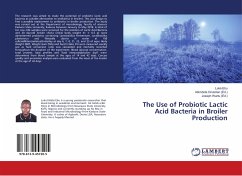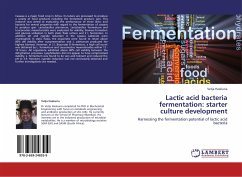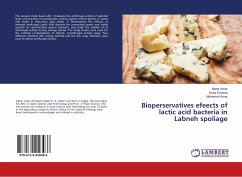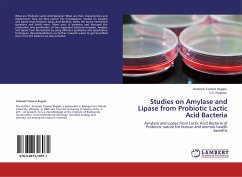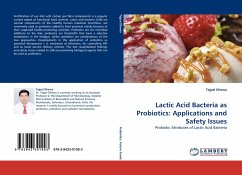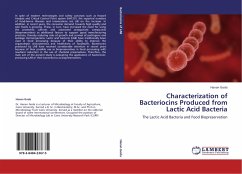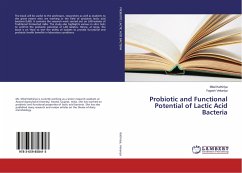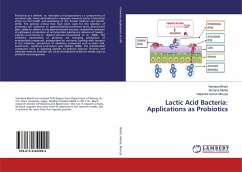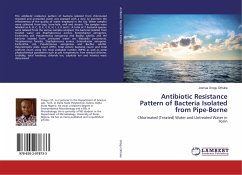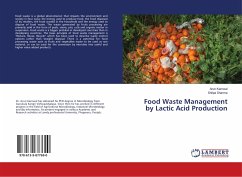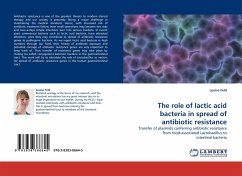
The role of lactic acid bacteria in spread of antibiotic resistance
Transfer of plasmids conferring antibiotic resistance from food-associated Lactobacillus to intestinal bacteria
Versandkostenfrei!
Versandfertig in 6-10 Tagen
32,99 €
inkl. MwSt.

PAYBACK Punkte
16 °P sammeln!
Antibiotic resistance is one of the greatest threats to modern clinical therapy and our society is presently facing a major challenge in maintaining the medical standard. Hence, with increased risk of antibiotic treatment failure, even small operations may become too risky and now-a-days simple infections turn into serious burdens. In recent years commensal bacteria such as lactic acid bacteria, have attracted attention, since they may contribute to spread of antibiotic resistance genes to pathogenic bacteria. As we ingest lactic acid bacteria in high numbers through our food, their history of...
Antibiotic resistance is one of the greatest threats to modern clinical therapy and our society is presently facing a major challenge in maintaining the medical standard. Hence, with increased risk of antibiotic treatment failure, even small operations may become too risky and now-a-days simple infections turn into serious burdens. In recent years commensal bacteria such as lactic acid bacteria, have attracted attention, since they may contribute to spread of antibiotic resistance genes to pathogenic bacteria. As we ingest lactic acid bacteria in high numbers through our food, their history of antibiotic exposure and potential carriage of antibiotic resistance genes are very important to keep track of. Thus transfer of resistance genes may take place by mating (so-called conjugation) between bacteria in the gastrointestinal tract. This work will try to elucidate the role of Lactobacillus as vectors for spread of antibiotic resistance genes in the human gastrointestinal tract.



